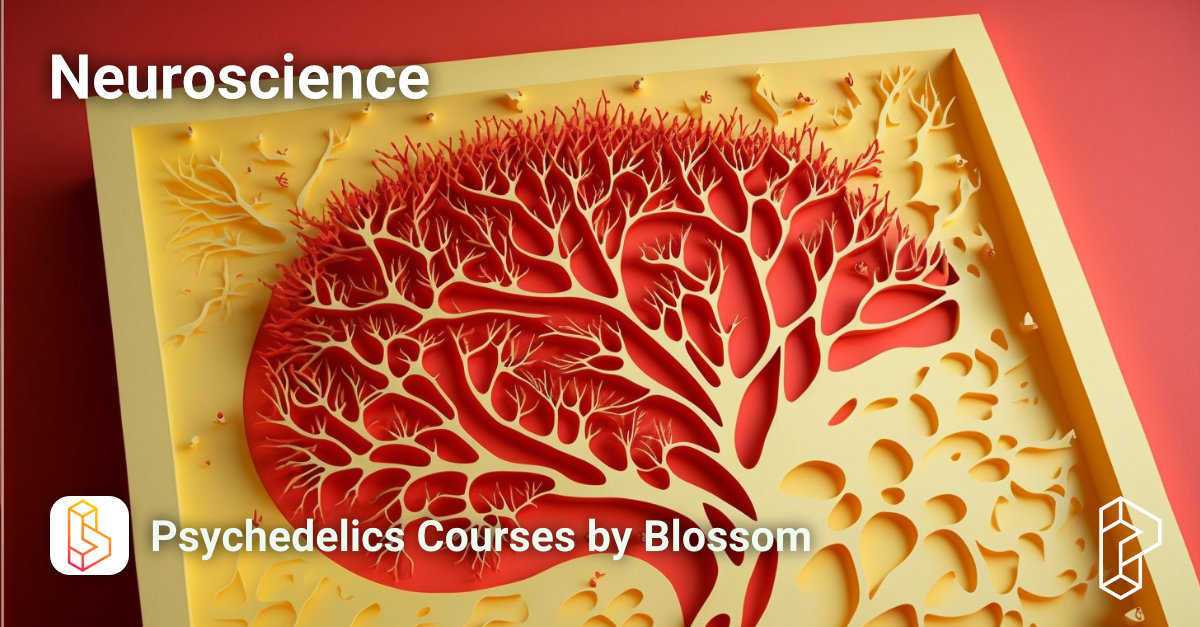
Subject
Neuroscience Courses
This page lists a variety of courses on the topic of the neuroscience of psychedelics. The courses cover a range of topics including the neural mechanisms of psychedelic drugs, the effects of psychedelics on the brain, and the potential therapeutic uses of psychedelics. The courses are designed for students, researchers and professionals in the field of neuroscience, psychiatry, and psychology who are looking to gain a deeper understanding of the science behind psychedelics.
The courses on this page provide an in-depth examination of the neural mechanisms of psychedelics, including their effects on brain function and structure. They explore the ways in which psychedelics interact with different neurotransmitters and brain systems, and how these interactions can lead to changes in perception, emotion, and cognition. Additionally, the courses will discuss the recent research about the therapeutic potential of psychedelics for conditions such as depression, anxiety and PTSD.
These courses will provide students with a comprehensive understanding of the current state of psychedelic neuroscience research, and its potential future implications. They also equip students with the knowledge and skills needed to critically evaluate the existing research and contribute to the field in a meaningful way.
0
Total Courses
List of Psychedelic Neuroscience Courses

CIIS
Bachelor of Science in Psychedelic Studies
Skills you'll gain: psychedelic science foundation, psychedelic facilitation, cultural context, current use

Monash University
Foundations of Psychedelic Therapies
Skills you'll gain: psychedelic-assisted therapy, clinical research methods, ethical practice, patient screening, safety monitoring

Monash University
Psychedelic Science Fundamentals to Frontiers
Skills you'll gain: psychedelic history, psychopharmacology, clinical research methods, ethical considerations, therapeutic applications

Synthesis
The Fundamentals of Psychedelics
Skills you'll gain: working safely ethically and skillfully with psychedelics, integrating other modalities and self-care practices, understanding the role of screening

Alef Trust
MSc in Consciousness, Spirituality and Transpersonal Psychology
Skills you'll gain: analyze consciousness dynamics, understand spiritual practices, evaluate transpersonal approaches, conduct research, apply integral life practices, develop self-awareness, explore higher states of being, understand psyche-soma relationship, improve critical thinking skills, apply knowledge to personal development

Johns Hopkins University
Johns Hopkins, Yale & NYU Psychedelic Therapist Training Program
Skills you'll gain: therapist skills - but only announced - not live yet

MIND Foundation
Augmented Psychotherapy Training
Skills you'll gain: psychedelic therapy skills, patient screening, treatment planning, patient preparation, psychedelic experience induction, experience monitoring, integration support, post-treatment preparation, harm-reduction communication, legal compliance, ethical challenge understanding, anthropological/medical history, self-experience relevance

Mind Medicine Australia
Certificate in Psychedelic-Assisted Therapies
Skills you'll gain: therapist training australia, MAPS protocol implementation, change theory, experiential learning

Alien Insect
Psychedelic Neuroscience Master Course
Skills you'll gain: cellular neurobiology, information processing, world-building, brain activity, pharmacology, psychedelic drug action, receptors, signalling pathways, classic psychedelics, DMT, reality channel switch
Information about the Neuroscience of Psychedelics
The neuroscience of psychedelics is a rapidly growing field that explores the neural and psychological mechanisms underlying the effects of psychedelic drugs. Some of the key components of this field include the study of the neural mechanisms of psychedelics, the effects of psychedelics on brain function and structure, and the potential therapeutic uses of psychedelics.
One of the key areas of research in the neuroscience of psychedelics is the study of the neural mechanisms of psychedelics, including how they interact with different neurotransmitters and brain systems. For example, psychedelics such as LSD and psilocybin interact with serotonin receptors in the brain, leading to changes in perception, emotion, and cognition.
Another important component of the neuroscience of psychedelics is the study of the effects of psychedelics on brain function and structure. Research has shown that psychedelics can lead to changes in brain activity and connectivity, particularly in areas involved in the regulation of mood and emotions.
In terms of therapeutic use, psychedelics have been studied for their potential to treat conditions such as depression, anxiety, and PTSD. These studies have shown that psychedelics may have therapeutic effects by increasing neuroplasticity and promoting emotional regulation. Additionally, psychedelics have been found to have therapeutic potential in other areas such as addiction and end of life anxiety.
